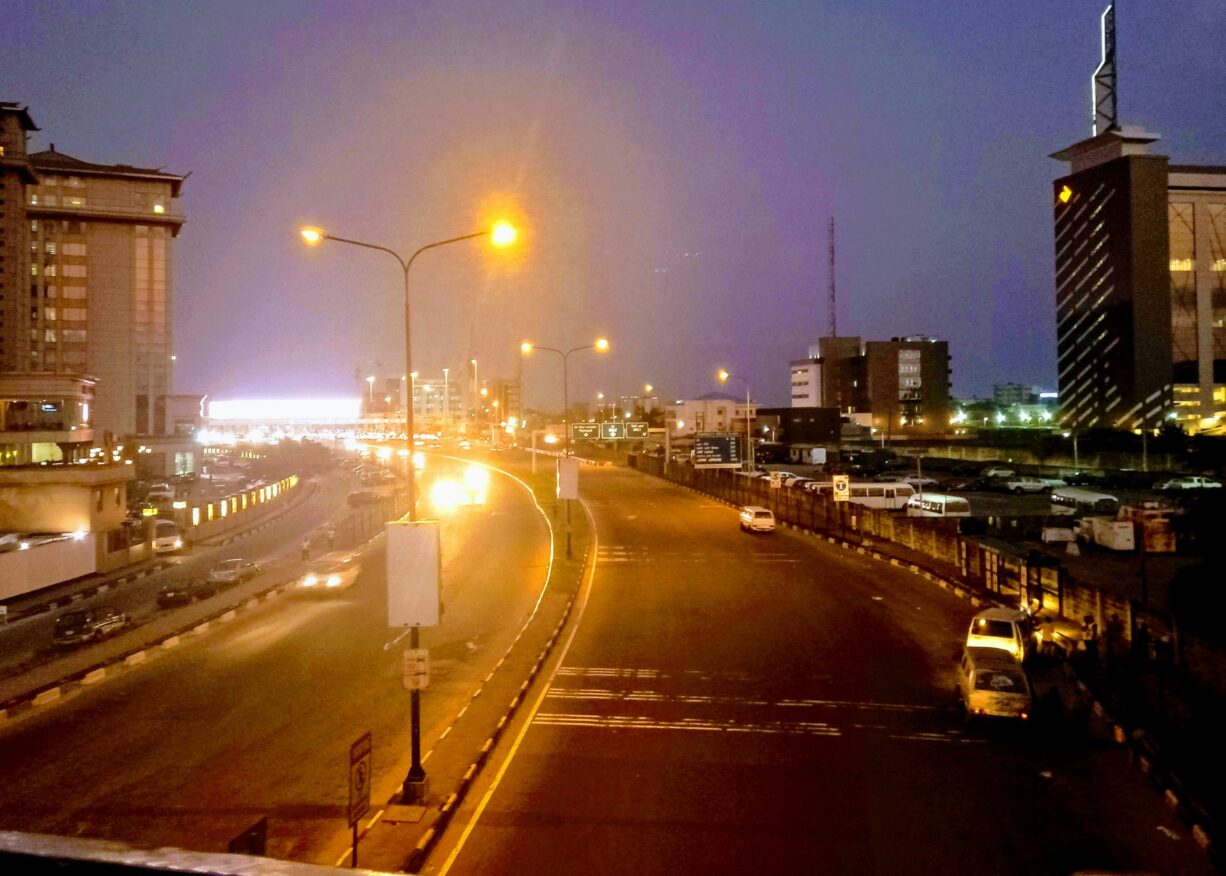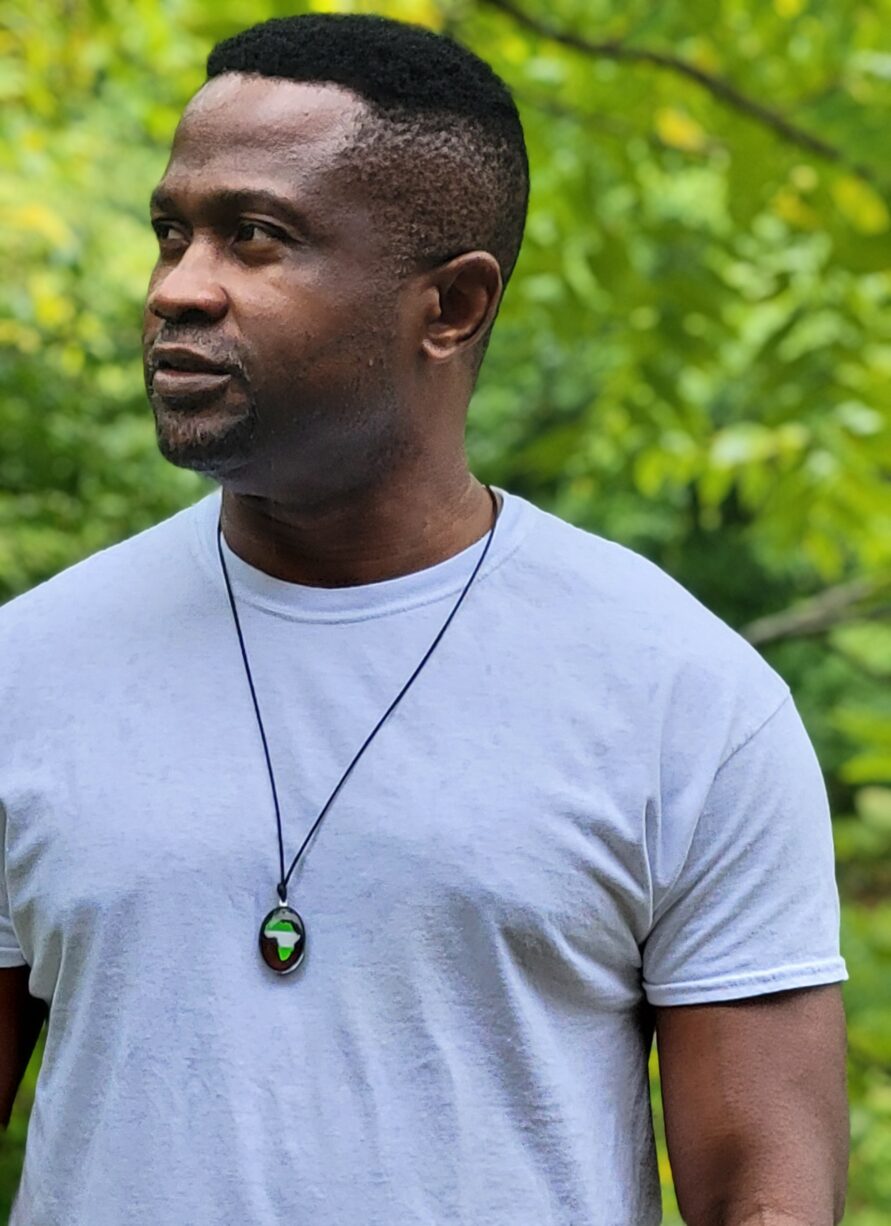
An Interview with Iheoma Nwachukwu, author of Japa and Other Stories
September 12, 2024 | blog, news

Having lived and grown up in North Charleston, South Carolina, I (Mary McCall, MFA ’26) was intrigued to read and traverse the many perspectives represented in Iheoma Nwachukwu’s Japa and Other Stories. This short fiction collection interweaves both stories of the Nigerian experience and immigration with the simultaneously individual and universal tale of what it means to be not only an immigrant in America but a Nigerian as well. It’s been an honor and privilege to not only read but talk with Iheoma Nwachukwu about this collection.

McCall: In your collection, specifically the Japa stories, your characters tend to reference and even idolize Utah, America. Why is that and what does Utah mean to them?
Nwachukwu: Religion draws its breath across the Utah landscape, and such a vista is seductive to an African. In Nigeria, the air brims with echoes of the sacred. Churches and mosques stand on street corners beside hotels and supermarkets. My characters are not necessarily displaced in Utah. They can define themselves in the Utah landscape because the ubiquitousness of Mormonism is redolent of home where Nigerians take religion into beauty shops and beer parlors. Utah is a familiar mold they can fit into.
McCall: What is the significance of connecting your Japa stories through the use of recurring characters and narrative?
Nwachukwu: Every collection strives toward a unity. That’s one thing recurring characters bring to a book like this. The blend of recurring narrative and repeating character(s) can deepen the complicity of readers because they identify with the character(s) and take sides. That’s investment. The reader takes possession of the story and makes it their own. It’s also fun for the reader. There’s a burgeoning anticipation when a character is re-encountered. What is she going to do now? Oh, no! This crazy person is back! Brother-character, will you redeem yourself now?
McCall: How were these stories impacted by your own experience as a Nigerian immigrant?
Nwachukwu: One common thread that runs through the stories is an awareness of cultural tension in the immigrant characters. This tension comes from the shaping force of the foreign landscape on the immigrant. So in that regard, my own experience as a Nigerian immigrant impacts my characters. I know what it feels like to be a Nigerian in America. An immigrant far from home. Experience can also be used loosely to mean the experiences of my immigrant-friends who’ve shared their stories with me. Every immigrant’s story feels familiar. In “Hosanna Japa Town” we encounter an immigrant trying to get to Europe through the Sahara Desert. That’s not an experience I have had, but my brother did try to go to Europe many years ago through the same route. He talked about it for months before he finally did it. I recall those conversations. You could cut his anticipation with a knife. The fear of what he might encounter on the journey was raised several times with me. His driving impulse to leave our family and Nigeria, his yearning to define himself in a world that had begun to question his role as first son. All of that was palpable. All of that became my experience. All of that went into the book.
McCall: This collection explores the dangers of living in Nigeria as well as the dangerous political climate there. Is there anything you would like to say about your own experiences in Nigeria regarding said political climate or your time living there as a whole?
Nwachukwu: The Nigerian government is not pro-Nigerian. In the last election party-sponsored thugs lit up the streets with violence, targeting anybody who wouldn’t vote for the candidate eventually declared winner by the electoral body. Though many Nigerians believe this candidate cheated. The Nigerian government is dangerous. Today journalists are kidnapped off the streets, tortured, and held on trumped up charges. By the way, this just happened in Port Harcourt City in Nigeria. If journalists are being targeted today, it’s only a matter of time before writers are pulled out of bed and locked up because somebody in the government saw a word in your book they didn’t like. That’s called censorship by stealth. Today’s Nigeria reminds me so much of the unhappiness Nigerians felt during the dictator, Sani Abacha’s regime. Back then we resorted to cooking with sawdust-stoves because kerosene was scarce. Abacha’s daughter imported low-grade petrol into Nigeria, the sort that made vehicles cough up voluminous smoke which caused the eyes to burn. The present president has raised the price of petrol and diesel. His family or cronies reportedly own a petroleum blending plant in Malta that diverts petroleum away from Nigerian refineries. The petroleum is processed in Malta and then sold back to Nigeria at international prices.
McCall: Throughout your collection, the concept of racism—whether openly, through microaggressions, or ignorance—comes up in every story. How does this align or misalign with your own experiences?
Nwachukwu: When I first came to the US I bunked up, for a brief period, with a classmate who snapped at me when I dropped a bottle cap on the floor. “Pick it up!” he’d yell. “We don’t do this in the US!” It was exhausting, and a very uncomfortable way to learn what was de rigeur in this new country. I felt humiliated. He was a very special douchebag. He would interrupt my conversations with a girl at school events and ask loudly about my fiancé. From him I learned how language can be coded to put the immigrant in his place. I don’t think the collection really deals with racism in overt ways. But the immigrants are always aware of themselves as the “other.”
McCall: Assimilation arises as a common experience for many of the Japa characters in your stories as they attempt to “fit in” to American society. Given your own experiences, would you say this is common?
Nwachukwu: Immigrants always tend to “assimilate” in two main ways. Throw themselves headlong into the American Dream, and replace their pre-American selves, with a new individualistic self offered by America. Or they place a sieve over their consciousness and gravitate toward a new, composite-self. Of course there are other methods of assimilation. My explanation here is inadequate.
McCall: Your story “Hosana Japa Town” explores how difficult and dangerous it is to immigrate from and leave Nigeria, a recurring theme in many of your stories. Do you feel this is a common experience as well?
Nwachukwu: The danger is not a common experience. For instance, traveling through the airports. But I’d say that it is always difficult to leave. Funding is a problem. Many families don’t have a breadwinner because the parents don’t have jobs. You graduate from college, a biochemist, and the job you want has been given to someone—the managing director’s sixth wayward cousin—who left school at primary four. A lot of people cannot afford the cost of a ticket to Europe, and in any case would not be granted a visa, so they resort to undertaking the harrowing trip through the desert, hiding in the wheel-well of airplanes where they either freeze to death, or fall out at ten thousand feet.
McCall: What does this collection mean to you and what do you wish for readers to take away from this collection?
Nwachukwu: I put almost a decade of work into this book. There are people who meant a lot to me, mentors, in Africa and America, who looked forward to my first book, and passed before I got there. This book is for them. For my readers, I hope these stories make you wonder about what makes us human, and how we can be kinder versions of ourselves.

Iheoma Nwachukwu is the author of Japa and Other Stories, published by UGA Press. He has won fellowships from the Michener Center, the Mississippi Arts Commission, and the Chinua Achebe Center for Writers. His fiction, poetry, and nonfiction have appeared in Ploughshares, Lit Hub, The Iowa Review, The Southern Review, AGNI, PRISM International, Electric Literature, and other venues. He is an Assistant Professor at Eastern University. He lives in Pennsylvania with his wife, Chinenye, and their three sons.
